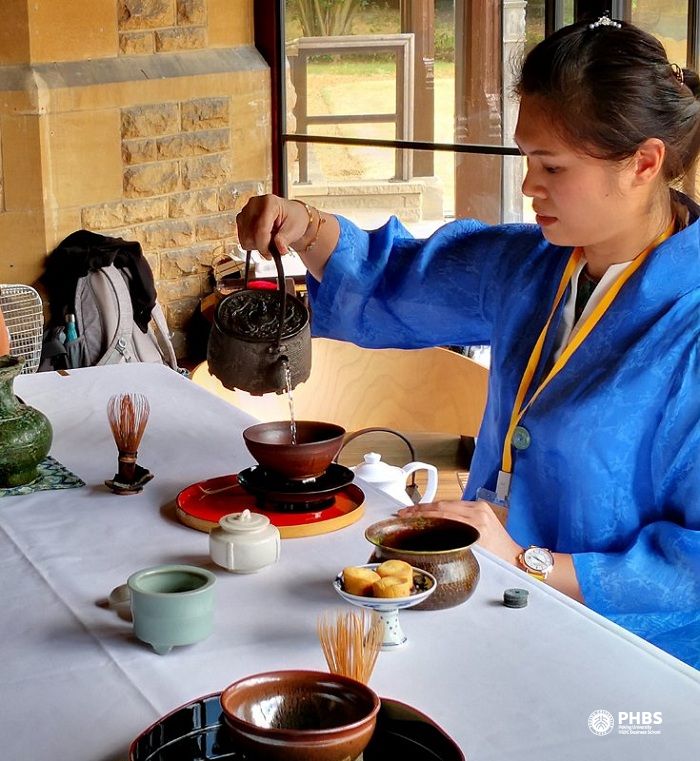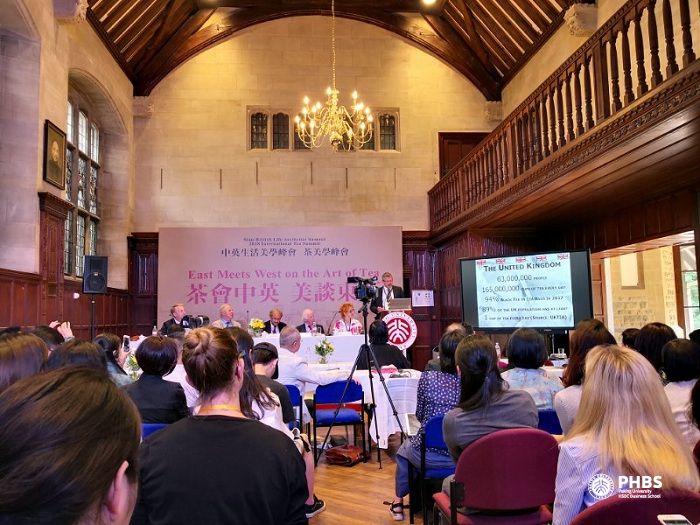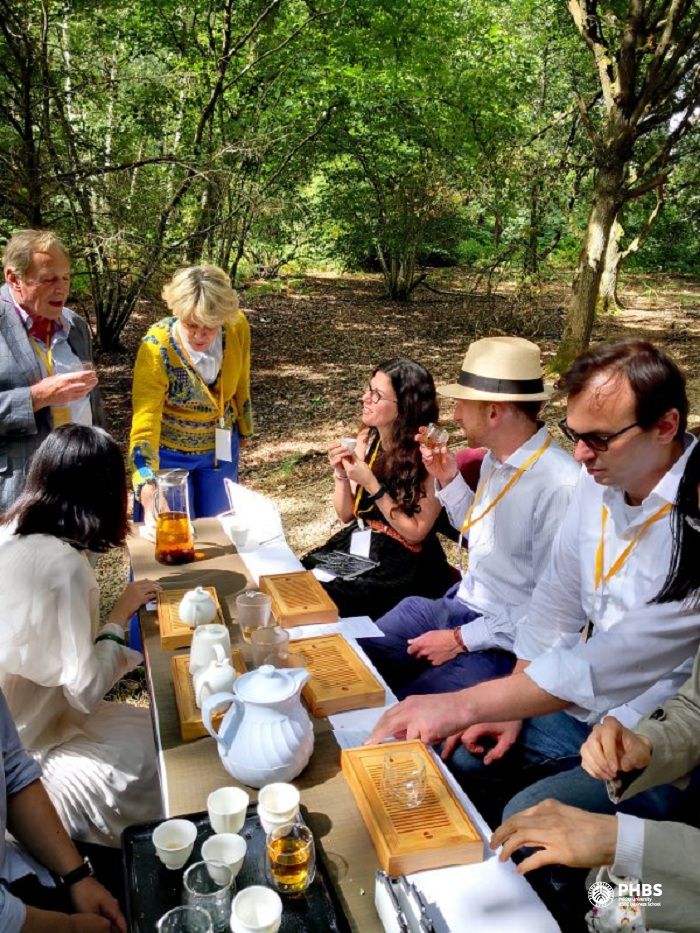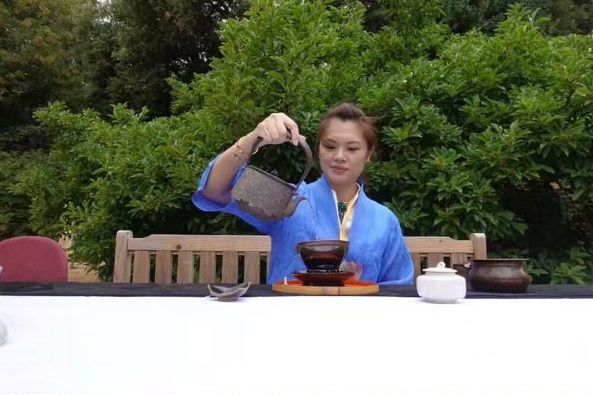A Chinese Proverb: “Tea is drunk to forget the din of the world” – T’ien Yiheng
A British quote: “Wouldn’t it be dreadful to live in a country where they didn’t have tea” – Noel Coward
In the golden era of UK-China relationships, the UK Campus of Peking University HSBC Business School (PHBS) in Oxfordshire hosted the 2018 International Tea Summit: East meets West on the Art of Tea on Saturday 28 July 2018. The event was jointly hosted by Shuxiang Culture Research Centre, Oriental Aristo Studio and UK-China Innovative Education Centre.
The aim of the Summit was to explore and promote the world of tea in each of the two countries, both representing the largest tea market worldwide. By looking at the history and culture of tea in China and Britain, and the new developments and trends, this was an opportunity for participants to contribute to more cooperation and innovation in the industry in the future.
Taking part in this important day were tea practitioners, growers, merchants and traders; historians, writers and researchers; and collectors, artists and curators.
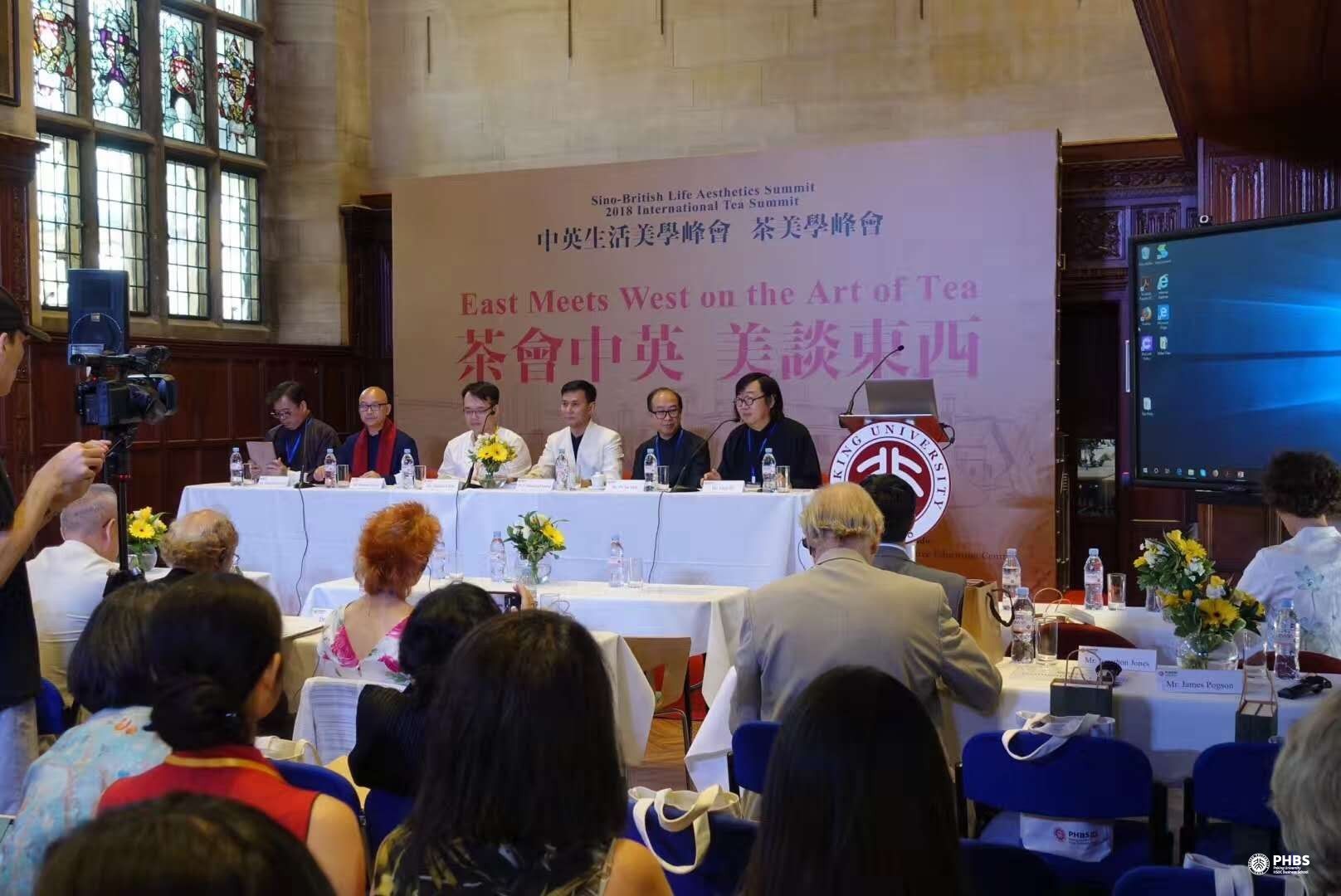
The morning consisted of a Sino-British Life Aesthetics Forum with a series of presentations from academia and trade. In the afternoon delegates were treated to a series of Tea Art Performances, and the day ended with an Award Dinner at Mansfield College, University of Oxford.
Professor Guy Liu, Head of the PHBS UK Campus welcomed invited speakers, distinguished guests and visitors, and congratulated the hosts on organising such an exceptional summit. He also sent very good wishes to the organisers from the Lord Mayor of Oxford, Councillor Colin Cook.
A number of distinguished speakers gave presentations at the summit including Mr Fang Ye, the Founder of Shuxiang Culture Research Centre; Professor Haifeng Huang, Peking University HSBC Business School; Professor Alan Macfarlane, Professor in Social Anthropology, University of Cambridge and Fellow of the British Academy; Dr Paul Flather, former Head of Department of International Affairs, University of Oxford and Secretary General of the Europaeum; and Mr Ian D H Gibbs, Chairman, International Tea Committee.
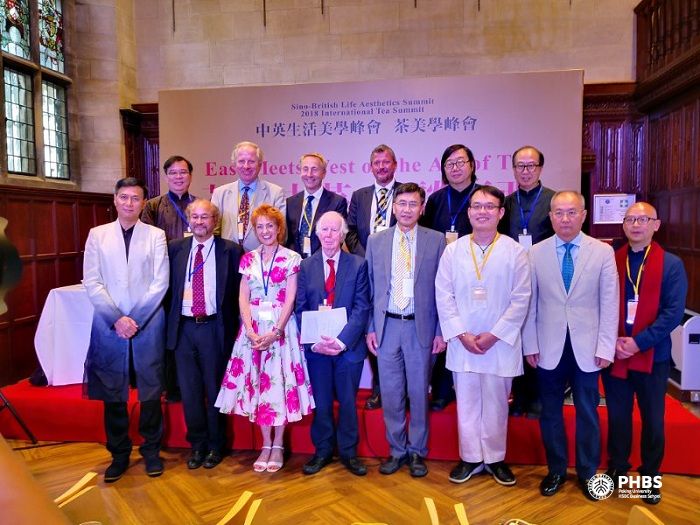
Back row: left to right – Junzhi Liang, Dr Ian D H Gibbs, Jonathon Jones, James Pgson, Fang Ye and Po Tai MaK
Front row: left to right- Haifeng Huang, Dr Paul Flather, M0020s Jane Pettigrew MBE, Professor Alan Macfarlane, Professor Guy Liu, Jingyao Chen, Yong Wang and Hongbo Wang.
In the afternoon Tea Tables were placed in the beautiful gardens and woods of the campus. At each table guests were invited to taste the exquisite teas, learn about the tea and its history, and admire the elegant tea ware on display, including some items that were over 100 years old.
The hosts at the six tea tables and the tea they were brewing:
Lancang Ancient Tea – Pu’er Tea and Black Tea; Jhao Siangju – Matcha; Fusheng Tea – Purple Red Tea; Tea Life – Houkui Green Tea; Oriental Aristo – White Tea; The Chinese Tea Company – Oolong Tea.
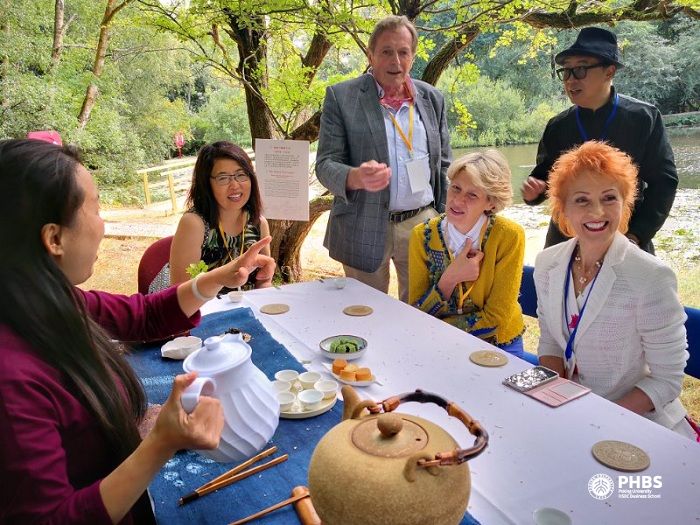
Over the following two days the co-hosts of the summit organised a series of exchange workshops and discussions. These included ‘Chinese Tea Meets British Tea’, ‘Tea Leaves Mixing’, ‘Communication on the Design of Tea Ware in China and Britain’, ‘The Sharing of the Genius Behind the Internationalization and Commercialization of British Tea’, and ‘Learn about the Path and History of Chinese Tea Spreading to the West’. These workshops were aimed at facilitating the in-depth communication between Chinese and British tea companies, as well as trade institutes and research communities of the tea industry.
Xiao Ma, founder of Oriental Aristo Studio and one of the summit’s co-hosts, explained that “the idea for putting together such a broad range of contributors was to give delegates, distinguished guests, speakers and tea practitioners the opportunity to exchange ideas and develop new relationships within the world of tea”.
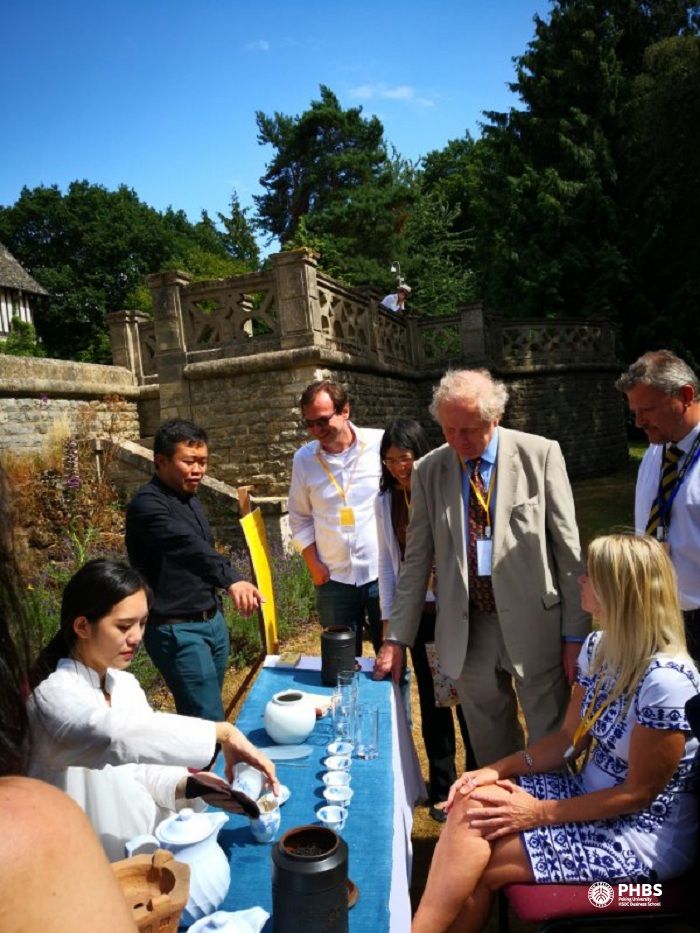
When discussing the future of tea, many of the speakers agreed that there is a new trend growing in China where people are beginning to rediscover the tradition of tea and its cultural heritage. To make tea takes time, and perhaps it is because the modern world is so fast that young people are discovering the enjoyable benefits of taking time to drink tea. Ms Xiao Ma, Oriental Aristo Studio, commented that young Chinese are beginning to go to tea houses because they are becoming trendy, becoming cool, with some of these tea houses attracting long queues of people wanting to try this experience for themselves. Mr Po Tai Mak, Collector and Founder of PT Collection, explained that it is not only the young; many more business meetings are beginning to be held in tea houses rather than restaurants.
The future is bright. Tea has always been recognised for its health and medicinal properties, which will never change and will forever guarantee the future of tea.
By Alison Bloomfield
Edited by Yijing Li





